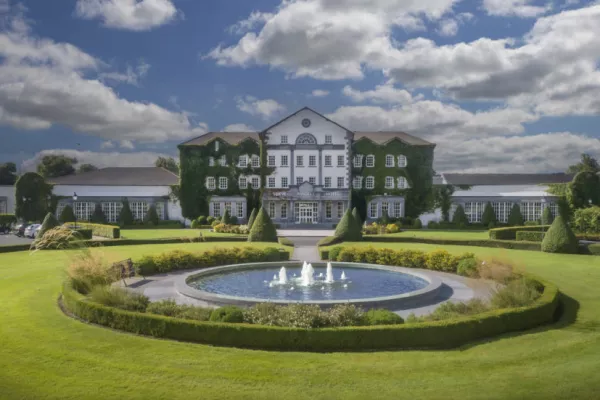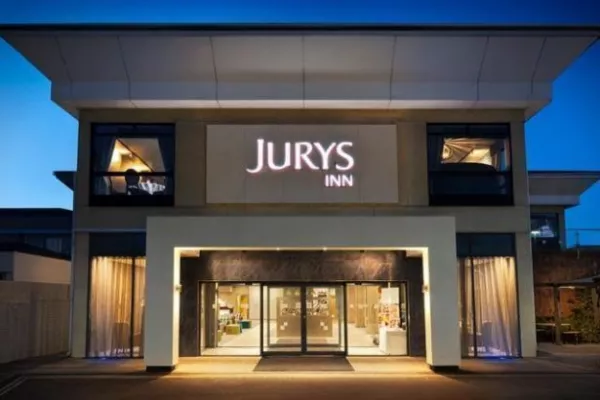Training and developing staff is vital for a hotel to succeed. In these days of online reviewing and social- media sharing, the competency of a hotel’s team is paramount. John Golden talks to five trainers about the benefits of training, recessionary changes and the increased use of technology in training.
For the hotel industry, more than most other businesses, employees are the asset to rely upon to improve business, and synonymous with the hotel’s brand. Well-trained staff will improve a hotel’s bottom line, as guests who feel like they are being looked after by professionals will return. Equally, poorly trained staff will hurt a hotel’s turnover. TripAdvisor reviews entitled ‘Rude Staff’ or ‘Lovely hotel – pity about the staff!’ can be devastating to a hotel’s business.
This is why training is the difference between a good hotel and a great hotel.
Edward Gallier, group learning and development manager for Jurys Inn, says that the business of training starts before the potential staff member joins the team.
“We recruit people for their personality and communication skills. We like to get people we consider ‘Jurys Inn people’ from the start,” he says. To do this, an applicant must go through a value-screening process when they apply online. From this, Jurys can pick people whom, it believes, it can train in the hotel’s ethos.
The benefits of training are innumerable to the hotel. An employee who doesn’t feel that s/he has the tools to do his/her job up to standard will become demotivated. Training gives the employee this confidence to be happy.
“It gives us confidence that we’re delivering a great product for the customers,” says Edward. Staff development and promotion is also a benefit of training, as hotel groups prefer to promote internally when they can. Karen Healy, cluster training and development manager for Hilton Ireland, has seen how an increased focus on training has helped the group develop staff personally, as well as professionally.
“It’s been very motivating for me for people to come to me and ask for career- development chats. I would meet them once a month to develop their skills.”
Train And Retain
Ultimately, staff retention is the goal for managers. In an improving hotel sector in Ireland, job availability is increasing and hotels are finding it tougher to hold on to good staff. While the likelihood of an employee staying is increased when they are trained, there is always the risk that a newly skilled team member will take those skills and move on. However, it is a risk that managers are willing to take because, as Marc Thornton, managing director of DTA Marketing, says, “What if they stay and remain untrained?”
DTA Marketing is an external training company that deals with areas such as selling, customer care and staff motivation. An external trainer, according to Thornton, gives a different view of staff than that of the managers they see every day.
“It’s a bit like a parent talking to you all the time. When somebody else outside tells you the same thing, you might be more likely to listen.”
Thornton believes that hotels that train reap the rewards, as they become attractive places to work. “It’s a very strategic view because you will attract more staff if you’re known as a training hotel. The good hotels that do this attract the young talent. If you want to grow your staff, you really need to invest in them. You’d be surprised at the number of stars that come through that can become assistant mangers, or even managers, without necessarily going through the most formal route. That’s what training can do.”
Edward Gallier sees the benefit of training, even if the staff do end up leaving. “My hope would be that when they leave – and they leave just to try something different – is that their new employer will see the skills they’ve gained. In a way, they become an ambassador for Jurys Inn. If people leave to get different experiences but still talk positively about Jurys, that’s no bad thing. To try and retain everybody is not a good business goal.”
Recession Recovery
The Irish hotel sector’s recovery from the recession has been well documented. Occupancy and RevPAR are the highest they’ve been since before 2008, and the industry as a whole is on an upswing. During the recession, Marc Thornton believes that because training was put on the back burner somewhat, service levels were affected.
“The only training that was being done were the legal necessities. Service levels disimproved, as new staff were not trained to the level of existing staff, and therefore, tips would be down and targets would have been harder to reach because staff were demotivated. This caused businesses to fall into the trap of looking at the recession as a negative, rather than coming up with new ideas to generate more business.”
Although she doesn’t necessarily agree with Thornton’s view on service levels, Sarah Marr, group HR manager for PREM Group, acknowledges that training was not seen as a priority in such testing times.
“In days gone by – and thank God they are gone by – a general manager would be saying, ‘Will I get a keg of Guinness or send someone on a training course?’ Thankfully, in general, those days have passed. There is more of a budget available for training now, and the key thing is to make the most out of those budgets.”
With the improved conditions, not only is training an affordable benefit, it is also necessary for hotels, as staff are not as “thankful just to have a job”, as Karen Healy puts it. “People didn’t move around as much during the recession, so companies weren’t as worried about retention. People were holding on to the jobs they had. The development part wasn’t as necessary, as people were just happy with the job.”
Training Methods
This return to training as development has been the biggest change since the recovery, and managers are able to try new and innovative methods to improve these areas. Although hotels still focus on tried and tested methods such as classroom-based training, face-to-face meetings and training books, increased funds give hotels a chance to try more modern approaches, such as online and/or game-based training.
One such company offering this service is Jamjou, an Irish start-up founded by CEO Jo Brennan in 2014 that uses game-based technology for real-life work scenarios in training. Employees can access the training games via their PC, tablet or mobile, and develop their skills at home or on the job. Technology-based training, says Brennan, appeals to the younger generation, for whom the idea of technology, games and interactivity has become second nature.
“Generation Y [millennials] were raised with constant access to technology. This is raising challenges for employers on how to engage with them and keep them engaged. This generation is driving a demand for companies to bring new delivery methods of training, with more engaging content, smaller amounts of information more often, and self-paced training through any mobile device,” says Brennan.
One such company that has taken on this software is PREM Group. Sarah Marr has seen the way it is developing a friendly competitive nature among managers and staff. “The fact that people can do it on their PC, laptop or phones in work or at home is great. There’s an ongoing learning process that you can revisit again and again. All our general managers are playing in, so you can imagine, if you’re a receptionist, there’s nothing more rewarding than beating your GM’s top score!”
The idea of gearing training towards interactivity to make it more suitable for a younger generation is catching on across the sector. Marc Thornton has seen how people, particularly the young, just don’t react to lecture-based seminars. Training is more of a workshop than a lecture nowadays. It must be fun for the staff.
“You’ll find at any lecture people are looking at their smartphones, texting, on Facebook in the middle of a lecture!” he says. “The training has to be interesting enough that the people are actually paying attention, and staff want to be challenged. They want their view to be heard.”
Edward Gallier has seen this shift with younger staff, and Jurys have answered this by developing an online portal where employees can access a suite of information and interactive training. “Over 60 per cent of our team are under 30. With that generation, having access to learning and knowledge is second nature, a must-have. So if you’re not training and sharing information in the right way, the job becomes less attractive.”
Online and game-based technology gives managers another outlet, and can make a training manager’s job more hands-off. Increasingly, training and development managers are more involved with the design and direction process of training than actual in-house training days. However, the ideal formula is to find the perfect balance between the range of training methods, so employees can get the most out of all of them. “None of those things are independent. They all blend together for a learning experience,” says Gallier.
Personal Development
For the trainers, their work doesn’t stop at teaching skills and imparting information to employees. Ideally, a company will help an employee develop as a person, as well as a team member.
Empowering staff to become happier and more confident in their jobs is a key part of training. For Jurys, a hands-on approach is taken in assessing where the staff member is personally. This information is used to plan for the business, as well the employee.
Gallier says, “We have an online employee engagement survey where we ask employees outright about personal development, and we use that, along with the customer feedback, to plan where the business is going for the next 18 months. A good number of employees want to know their pathway, whether it be in the hotel or within the industry. In Jurys, we deliver on that promise.”
For the Hilton Group, Karen Healy has seen how the culture has changed for the better in the hotels, as the focus on personal development has changed the way employees see themselves in the workplace.
“Last year, we spent 1 per cent of the group’s budget on a programme called Covey’s Five Choices [‘The 5 Choices to Extraordinary Productivity’ is a training model that teaches workers to focus on important matters in the workplace]. That piece of training was us actually saying to the management teams in each of the hotels that we are looking at you personally and we are affording you this training opportunity for you to make some changes. It was brilliant because people felt they were being invested in because it was about them.
“A lot of it was around time management and increasing efficiency, but choice five was about exercise and work-life balance. For the first time as a company, we said that if our staff are working 20 hours a day, they’re not as effective, and we want them to have more of a balance of work and their outside life. I think that created a massive culture shift, as people saw that it wasn’t all about the bottom line.”
Shifting sector fortunes present opportunities and challenges for Irish hotels. With tourist expenditure increasing to €3.5 billion in 2014, hotels are on the frontline of the Irish tourism industry. Added to this is the proliferation of user reviews and word being spread through social media. The hospitality sector in Ireland is under the microscope now more than ever.
As such, hotels are encouraged to have a team that is friendly, knowledgeable and professional. The groups that find the perfect blend of new and innovative methods along with more traditional approaches, all while developing their employees personally, will prosper the most in a highly competitive market.













